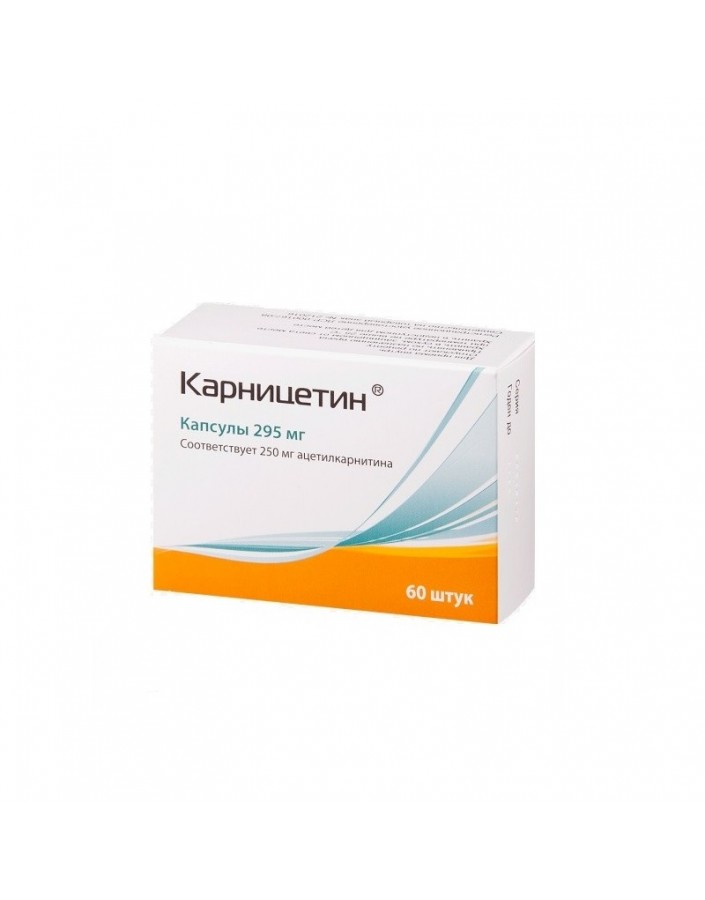




Security policy (edit with Customer reassurance module)

Delivery policy (edit with Customer reassurance module)

Return policy (edit with Customer reassurance module)
Acetyl-L-carnitine (ALA), a natural biologically active substance, is present in physiological conditions in the body in various organs and tissues, including the central nervous system, and is involved in the metabolism of fatty acids and carbohydrates. The pharmacological and biological effects of ALA are largely due to the metabolic effects of L-carnitine and the acetyl group that make up it. Acetyl-L-carnitine (ALA) is a biologically active form of L-carnitine, a key substance in the process of catabolism of fats and the formation of energy in the body. ALA is synthesized in the brain tissue, liver and kidney from L-carnitine with the participation of the enzyme Carnitine acetyltransferase. Since ALA supplies activated acetate directly to the mitochondrial matrix to form acetyl CoA, which participates in the tricarboxylic acid cycle, without additional energy expenditure, it is an easily accessible substrate for triggering energy-dependent metabolic processes in mitochondria. Due to the full energy supply of the body with less oxygen consumption by tissues, ALA protects brain tissue from ischemia.
Due to its structural similarity with acetylcholine, ALA has a cholinomimetic effect, and also exhibits neuroprotective properties. It increases the cellular concentration of aspartic and glutamic acid, as well as Taurine, with prolonged use increases the density of N-methyl-D-aspartate - receptors in the hippocampus, cortex and striatum and prevents their density from decreasing in aging conditions. ALA enhances the effects of serotonin and also protects brain cells from the neurotoxic effects of ammonia and glutamate.
The results of experimental studies have shown that ALK has anti-anamnestic activity, the ability to improve learning processes, indicators of non-associative memory, to have a positive effect on mnestic functions in an experimental Alzheimer's disease model, without causing side effects of a sedative and muscle relaxant.
ALA increases energy production, being an easily accessible substrate for the launch of energy-dependent metabolic processes in the mitochondria.Stimulates the synthesis of proteins and phospholipids for the construction of membranes, improves regeneration processes. In pathology, it has a neuroprotective effect, especially in relation to neurons and their organelles (mitochondria), as well as a neurotrophic effect by modulating the activity of nerve growth factor (NGF). It has antioxidant and membrane stabilizing action. ALA can accelerate the regeneration of nerve cells in traumatic and endocrine injuries of peripheral nerves in experimental models of polyneuropathy in diabetes.
ALA has a noticeable effect on slowing the aging process by increasing the transport of fatty acids to mitochondria and maintaining their work at the level of a young organism. ALA can accelerate the regeneration of nerve cells in traumatic and endocrine injuries of peripheral nerves in experimental models of diabetes.
In animal studies with oral administration (500 mg / kg), the maximum concentration of the drug in the blood occurs after 4 hours and is 40 mcM / l for 8 hours. ALA is absorbed from the gastrointestinal tract due to active transport or by simple diffusion through the mucosa ( subject to its high concentration). In most tissues, including cerebral, ALA comes from the bloodstream (with the exception of the liver and small intestine) in unchanged form. In the cell, ALA is supplied by a direct energy-dependent process against a concentration gradient. Excreted by the kidneys.
- Alzheimer's type initial dementia (Alzheimer's disease) and cerebrovascular dementia;
- peripheral neuropathy of various etiologies;
- primary and secondary involutional syndromes on the background of vascular encephalopathy;
- decrease in mental performance, for improvement of concentration of attention and memory.
Carnitetine is taken orally. Single dosefor adults usually 1-4 capsules, daily dose of 6-12 capsules. The course of treatment is 1-4 months.
Allergic reactions, nausea, heartburn.
- individual hypersensitivity to the drug;
- age up to 18 years (efficacy and safety have not been established).
Special studies on the possibility of using during pregnancy and during breastfeeding have not been conducted. The drug is used only if the intended benefit to the mother exceeds the risk to the fetus. At the time of treatment should stop breastfeeding.
Contraindicated at the age of 18 years (efficacy and safety have not been established).
Cases of overdose are not registered.
Cases of drug interactions are not marked.
Store in a dry, protected from light and out of reach of children at a temperature not exceeding 25 ° C.